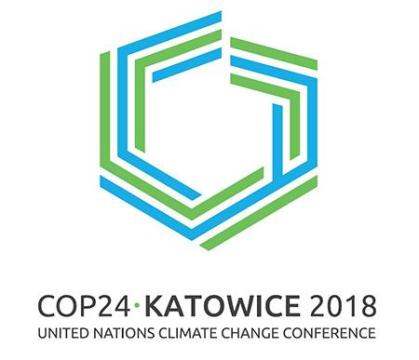ITF at COP24

At the Katowice Climate Change Conference, also known as the 24th Conference of the Parties (COP24) to the United Nations Framework Convention on Climate Change (UNFCCC), it was acknowledged that climate change won’t be stopped without decarbonising transport. The situation is urgent. The transport sector has to start acting fast to provide the enabling framework to scale-up action. There is also an urgent need to increase collaboration across sectors and within governments in order to raise ambition and develop specific policy pathways for transport.
It will be the task of governments to steer businesses and other stakeholders in the right direction. The sector must decide what will be included in the Nationally Determined Contributions (NDCs) for transport and what is truly important for the sector. Current initiatives are insufficient and still favour fossil fuels.
ITF experts brought these messages to COP24 over several events. Our unique position as a focal point for transport, as designated by the United Nations Framework Convention on Climate Change (UNFCCC) Marrakech Partnership for Global Climate Action (MP-GCA), gave ITF and the Decarbonising Transport initiative a central role in the exchange of information between transport stakeholders and the UNFCCC.
The Scaling Up Climate Action in the Transport Sector MP-GCA Transport Action Event highlighted that only 60% of NDCs have included any kind of transport measures and these measures often lack a comprehensive approach to address the challenges in reducing carbon emissions in passenger and freight transport. Many other transport initiatives are not captured, particularly in emerging economies. Available, cost-effective solutions to reduce transport emissions are needed to increase the speed of action. Innovative strategies are needed in many areas from financing and urban planning to modal shift and shared-mobility. Reorganisation is needed to provide the same accessibility levels using fewer vehicles. It is critical to bring political leadership from the transport sector into the climate change policy process together with the environment ministries.
The Policy Pathways for Decarbonising Transport official UNFCCC side event was jointly organised with the International Association of Public Transport (UITP) and International Union of Railways (UIC). The session found that current initiatives still favour fossil fuels across different modes and identified biofuels as a low-hanging fruit. The focus on innovation should complement existing technologies and strong partnerships were especially needed to increase awareness. Correct pricing and timely implementation for sustainable mobility could be achieved with better planning. Improvements in the railway system will change behaviour as people want reliable, safe, comfortable, convenient, and affordable transport.
Messages from the Roundtable on Climate Action Plans for Ports: Improving Mitigation and Resilience Measures addressed the fact that the carbon emissions from shipping are increasing three times faster than other sectors. Standards being applied have an impact on how industries are growing and how governments are reacting. But more governance is needed to bring the public and private sectors together. Ports themselves can reduce shipping emissions by providing infrastructure for alternative fuels, regulating ships that enter, e.g. speed limits and by creating incentives for cleaner ships. The issue of air quality needs to be addressed simultaneously to climate change. Consensus was found on the need to apply good practice, promote higher efficiency and improve data consistency and transparency. The sector requires better and stronger incentives, which will also support companies that need to make long-term investments. The necessary reduction in maritime transport carbon emissions can be done through changes in technology, operational measures and alternative fuels. Overall, the shipping sector needs to follow the Paris Agreement and it needs to do so rapidly.
We also ran a successful "Action Hub" session on Shared Mobility: The Power to Slash CO2, bringing the results of ITF modelling work to life using real user data and visualisations from several cities.